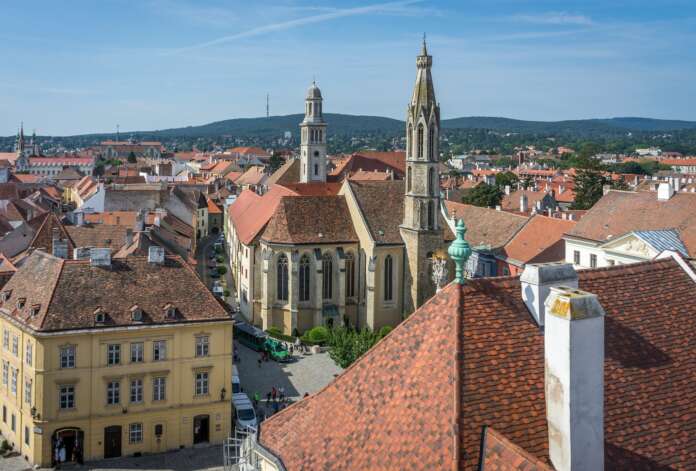To support the energy efficiency improvement of residential buildings and the installation of domestic renewable energy systems across the country, Hungary’s Home Renovation Programme will receive 300 million euros of a green loan from the European Investment Bank (EIB).
The sum of up to 8.500 euros per household is expected to help homes reduce their energy bills, overall energy demand and cut greenhouse gases emissions. This is the first-ever EIB loan under the new green loan label which has been signed in Central and South-Eastern Europe. It is designed to assist Hungary’s green transformation into a carbon-neutral economy.
“Today we are making history with the first-ever EIB green loan signed in Hungary. The loan is a triple win for Hungarians, the European Union and the global climate, and an important step towards delivering on the ambitious goals of the European Green Deal”, underlined Teresa Czerwińska, EIB Vice-President who is in charge of EIB operations in Hungary.
“Loans like this will help the European Union become carbon neutral faster, and in turn, contribute to the success of global climate action. Hungary was among the first EU countries to ratify the Paris Agreement as the global roadmap to address the existential threat brought by rising global temperatures. As the EU bank, we are glad we can support Hungary’s green ambition and its transformation into a green and sustainable society”, added Ms Czerwińska.
On the national level, the loan helps the National Energy Strategy and the National Energy Efficiency Action Plans of Hungary. They designate energy efficiency as a national priority and call for reduced energy imports, improved energy security and increased energy affordability.
Hungarian households consume 34 per cent of the country’s total energy, which is more than transport (24 per cent) or industry (23 per cent), making investments in the energy efficiency of homes key for meeting the carbon-neutral ambitions.
Improving energy efficiency has a key role to play in achieving carbon neutrality, as buildings in the European Union are responsible for 40 per cent of energy consumption and 36 per cent of greenhouse gas emissions. On top of reducing emissions of greenhouse gases, measures to improve the energy efficiency of homes enhance people’s quality of life, improve public health and create additional green jobs in the construction sector.
In the European Union, only one per cent of buildings undergo energy-efficient renovation every year, making programmes like the Home Renovation Programme key for the success of the European Green Deal.
Renovating buildings has been singled out in the European Green Deal as a key initiative to drive energy efficiency in the sector. In 2020, the European Commission published its strategy to boost renovation in the European Union — a renovation wave for Europe. It pursues a dual ambition of energy gains and economic growth.



